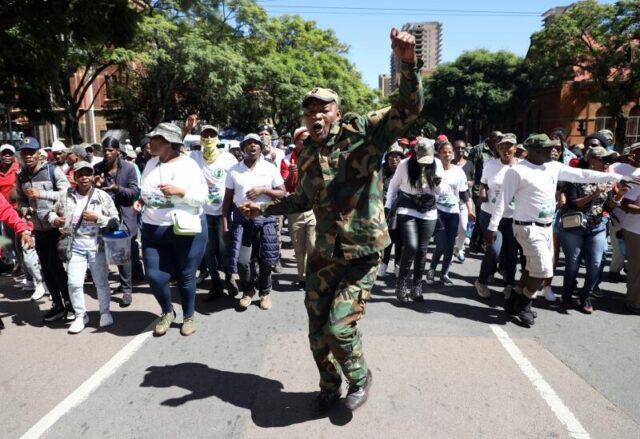CARPING POINT: The recent distribution of a BBC documentary, interviewing some of the people behind Operation Dudula, from the foot soldiers to the leaders, is a sobering reminder of the very real time tomb that is ticking, writes Kevin Ritchie.
THE RECENT distribution of a BBC documentary, interviewing some of the people behind Operation Dudula, from the foot soldiers to the leaders, is a sobering reminder of the very real time tomb that is ticking.
Dudula is a local movement whose entire raison d’être is to rid South Africa of foreigners. Its modus operandi is intimidation; extorting protection money from foreign shopkeepers in inner cities and townships and terrorising individual foreigners just trying to make a living – normally by doing work that ordinary South Africans aren’t prepared to do.
The documentary is horrifying on so many levels – the blind and naked hatred that some South Africans feel towards migrants, all the way through to the calculated dog whistles of its leaders lighting the touch paper to real issues that our politicians are wilfully ignoring.
But it’s also terrifying given our own history. It wasn’t too long ago that South Africa faced a very real problem with other uniformed militias, the Afrikaner Weerstandsbeweging chief among them. It wasn’t too much further back that Europe and – by force of circumstance – the rest of the world had to deal with the consequences of those jackbooted thugs. It started with the looting of shops and ended with people being gassed en masse and their bodies cremated in industrial scale ovens.
It’s easy to laugh at the primitive utterances of the Dudula faithful and deprecate the un-sophistication of their leaders. Many did the same with the brandy-swilling Eugene Terre’Blanche and almost wet themselves when he fell off his horse in Pretoria’s Church Square. But it wasn’t a laughing matter when his “commandos” gate-crashed the Codesa talks in their armoured bakkie or started shooting wildly in Mmabatho in 1994.
South Africa got off lightly though, it was left to Rwanda to show the world what could be achieved if political leaders put their minds to weaponising identity politics. It took them 100 days to slaughter a million of their countrymen while we were swearing in Nelson Mandela at the Union Buildings and selling the dream of the Rainbow Nation.
The saddest part of all, is that modern South Africa is the product of a righteous struggle against repression aided, abetted and funded by the front-line countries that could often ill afford to feed their own folk. Today, citizens of those same countries find themselves down south unwanted and easy prey for the people whose parents they gave succour to 40 years ago.
Xenophobia is an enduring modern South African shame, it is a nettle that none of our leaders is prepared to grasp because as next year’s general elections draw ever closer, identity politics is too much of a low-hanging fruit for them to resist.
They should be very careful. Black racism is no less odious than white racism. Left unchecked our post-apartheid record of state-tolerated xenophobia could soon be globally recognised as reprehensible as the crime against humanity that apartheid was.
And when that happens, South Africans will have no one to blame but themselves.
* Kevin Ritchie is a seasoned former newspaper editor and current media consultant. He writes the weekly Carping Point column.
** The views expressed here are not necessarily those of the DFA.








